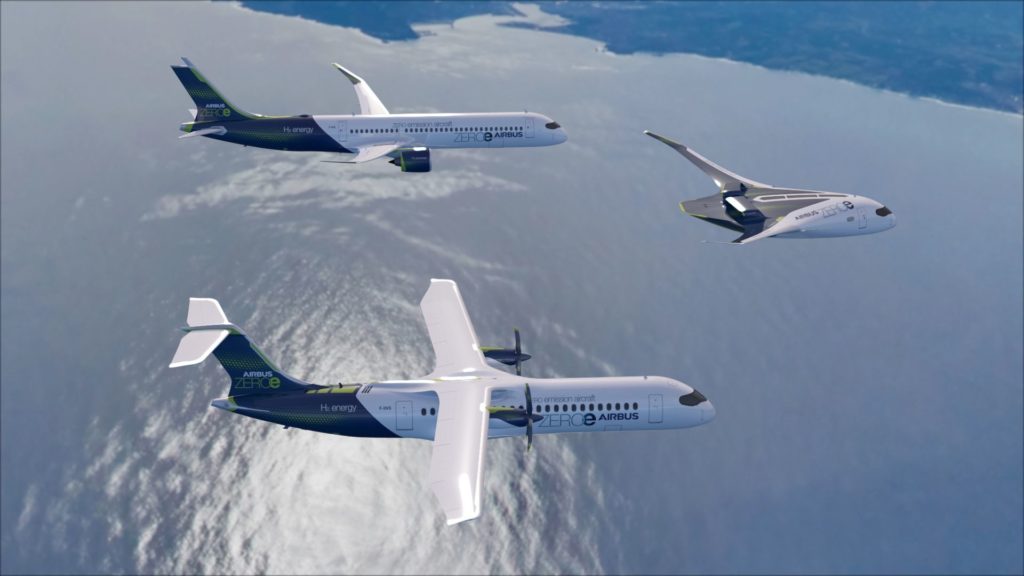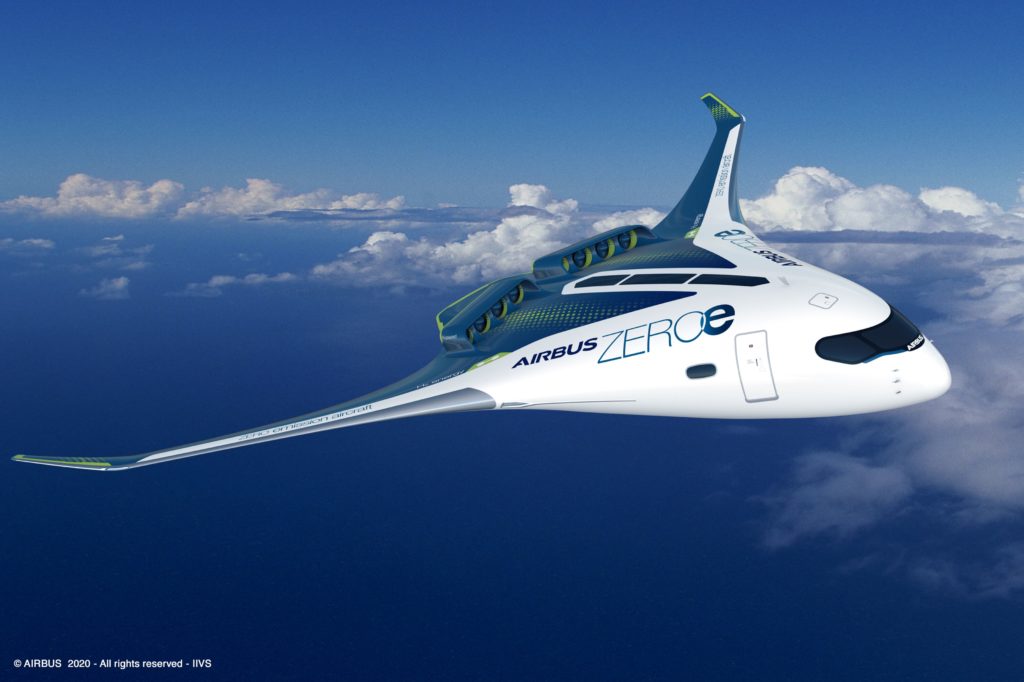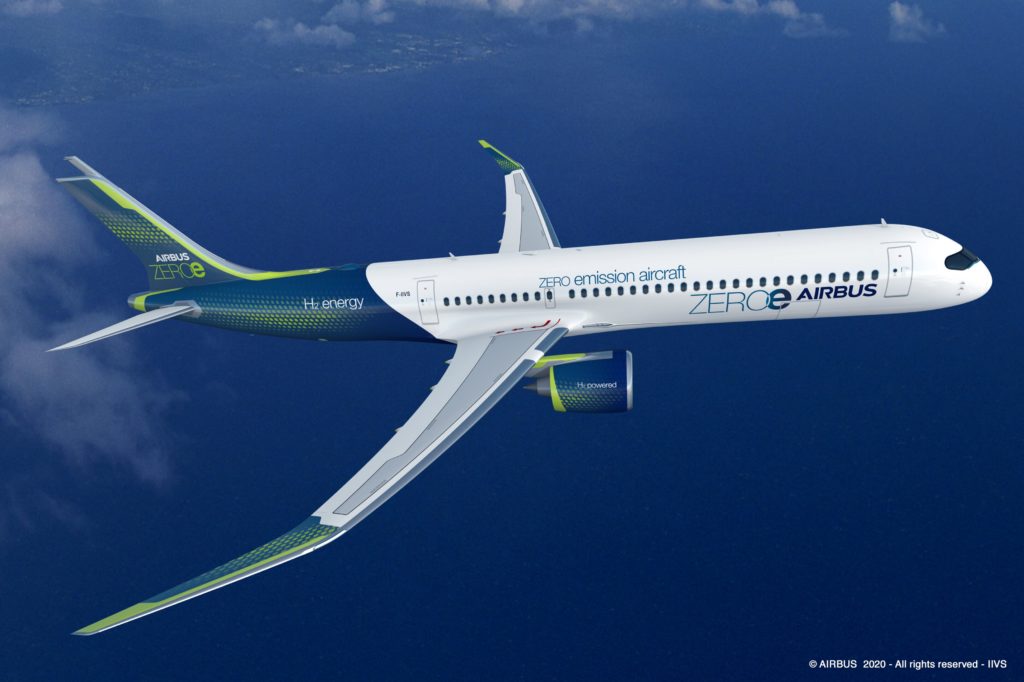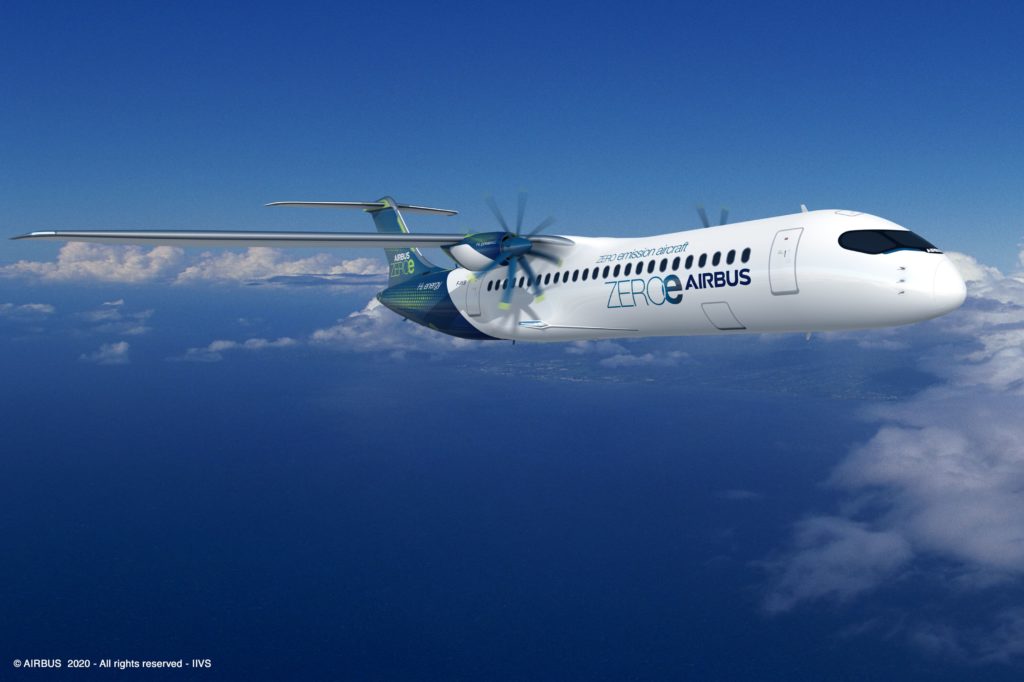
Automakers have been promising hydrogen-powered cars for decades and yet they seem no closer to mainstream acceptance than they were years ago. A new trio of hybrid aircraft designed by Airbus are a reminder of why hydrogen-powered aircraft shouldn’t be treated with the same level of skepticism.
The technology we use to power our transportation in the present is typically a reflection of simple market principles, which is why gasoline has hung around for so long. We have a lot of oil. It’s accessible to us. We have a humongous infrastructure built around oil.
The technology we use to power our transportation of the future is more often a reflection of our fears and our politics.
It’s easy to see why, for instance, an executive branch in the United States dominated by politicians from the southern states and figures like James Baker III wouldn’t prioritize fuel-efficient technology or electrification. But those same biases extend to other countries as well.
In his book “The Great Race: The Global Quest For The Car Of The Future,” Levi Tillemann points out that the Japanese were early to move on alternative fuel, battery power (see the Prius and Insight), and electric cars (with the Nissan Leaf). They even associated the development of EVs with their use of nuclear power and how having electric cars backed by nuclear energy would lead to fewer emissions. You can see where this is going.

After the terrible tsunami and Fukushima nuclear disaster in 2011, Tillemann credibly claims, the association between electric cars and nuclear disaster became a detriment to electric car development and the government prioritized hydrogen development over pure EVs.
Hydrogen cars, on their own, aren’t a bad idea. Most that have been developed are fuel cell vehicles, which use hydrogen as a fuel source to create electricity. They have a higher energy density than batteries currently offer and their only emissions are heat and water. As with pure EVs, the main source of greenhouse gasses come from the production of the fuel. If the electricity for your Tesla comes from a coal-powered plant then your power source, ultimately, is coal. The same goes for hydrogen production.
The main advantage pure EVs have over hydrogen fuel cell cars is that we already have an infrastructure to produce electricity and, if you can find an outlet, you can power your car. Right now there are only 44 hydrogen fueling stations in the United States and most are in California.
This is a problem because cars have to go everywhere and it’s not like we all park cars in one spot for a few hours at a time. What we actually do is park cars all over the place for extended periods of time, which is exactly why electric cars work so well. We don’t drive our cars in our sleep, so they can charge then and it’s actually better that way as it takes the pressure off of the electrical grid.

Do you know what form of transportation does involve us parking large numbers of vehicle in the same few places and traveling while we sleep? Planes. This, more than anything, is the best argument for hydrogen-powered aviation.
Even if we were to be constantly beset by global pandemics, there’s not much short of a breakdown of international society that’s going to stop us from flying all over the world all the time, which has an enormous and negative environmental impact. Battery-powered pure EV planes are a reasonable solution for short distance, primarily day-time flights you’d get from something like an EV flying cab. If you try to use batteries for long-distance flying you have to then contend with the time required to recharge (or even swap) them and the logistics of it don’t yet make sense with where battery chemistry is.
Hydrogen makes perfect sense for large airliners.
Putting aside any Hindenburg-fueled biases, filling up a plane with jet fuel or hydrogen or any other combustible fuel puts passengers in danger but we’ve done a wonderful job as a civilization at mitigating these risks. Hydrogen’s energy density and volatility mean that it’s not exactly one-to-one with jet fuel, but this mostly impacts where you store the fuel in a plane (i.e. removing it from the wings)
The main advantage of hydrogen either as a fuel for a turbine engine or a fuel cell is that they are carbon neutral and don’t have the same climate-altering emissions of a regular jet aircraft. This assumes, of course, that the source of hydrogen is carbon neutral, which brings us back to the gas station problem.
Building or rebuilding the more than 150,000 gas stations in the United States to support hydrogen is a questionable bet, but there are only 500 or so airports in the country that support commercial air travel and of those just a handful of hubs see a the biggest chunk of traffic. As CNN points out, hydrogen isn’t that difficult to produce and airports could make their own fuel onsite using a mix of wastewater and other sources (admittedly, there are a lot of imperfect ways to make hydrogen).
Therefore, when Airbus showed three potential hydrogen aircraft they’d like to put into production in the next 15 years it didn’t elicit the usual eyeroll I can’t help hide when I see hydrogen cars being shown off. Airbus is a French company, so all three concepts are called ZeroE for some pointless reason, but each one make sense.

The first is a regional turboprop, which uses hydrogen as a fuel-source of the engines and a fuel-cell to provide electricity. The second is a more traditional twin-engine airliner that does basically the same thing but with hydrogen turbofans as opposed to props. The final concept is a blended-wing option which looks futuristic and takes advantage of the way fuel is stored to give an alternative way to orient the cabin space on an aircraft.
All of these concepts could, in theory, serve the market we have now in a way that’s not particularly disruptive but could have multiple positive outcomes for struggling airlines and for the environment. Most importantly, unlike with cars, there’s no current alternative that seems feasible without a huge leap in technology.
So, sure, be skeptical of hydrogen cars. I’d love to see more hydrogen cars but I don’t buy the argument yet when compared to the feasibility of battery electric vehicles. Maybe, however, you can take a leap of faith with hydrogen-powered aircraft.
